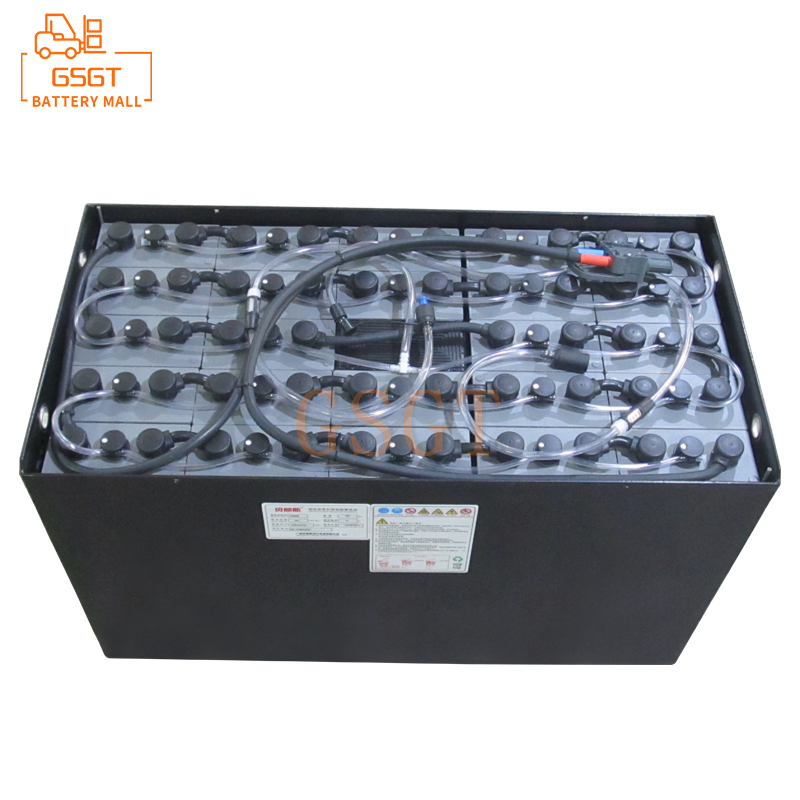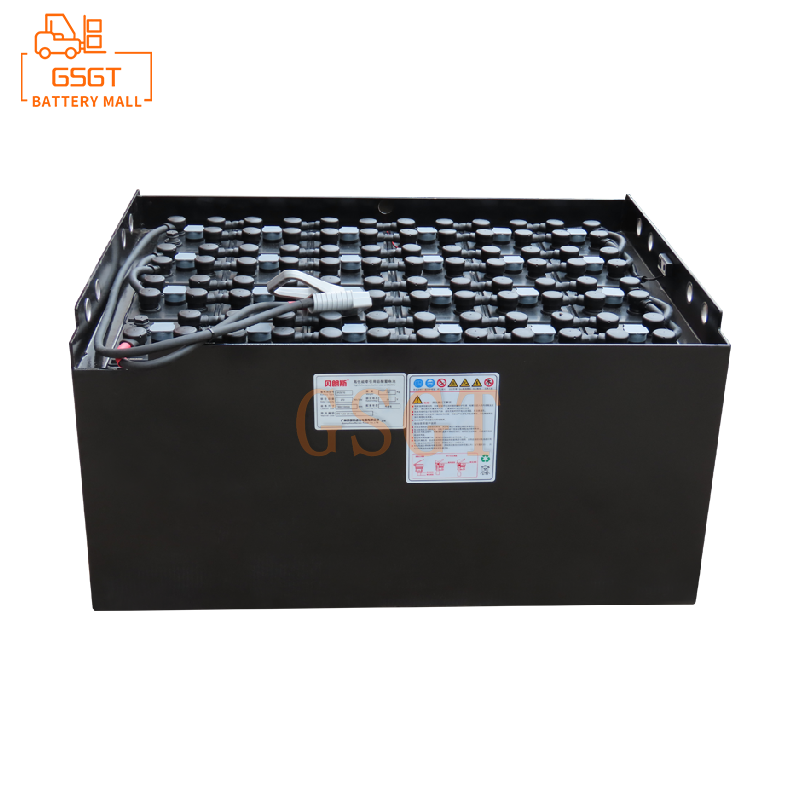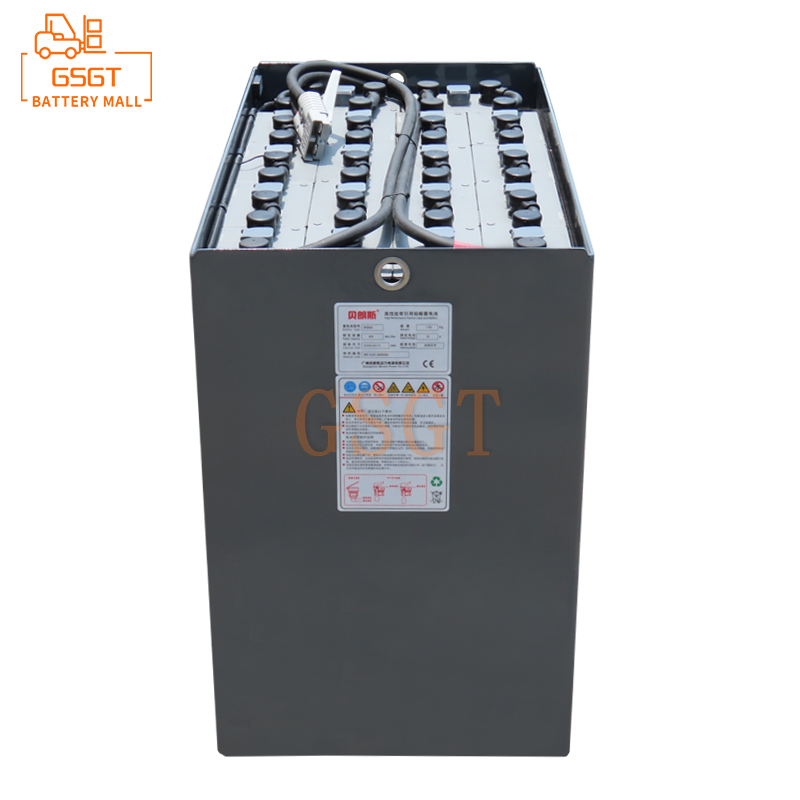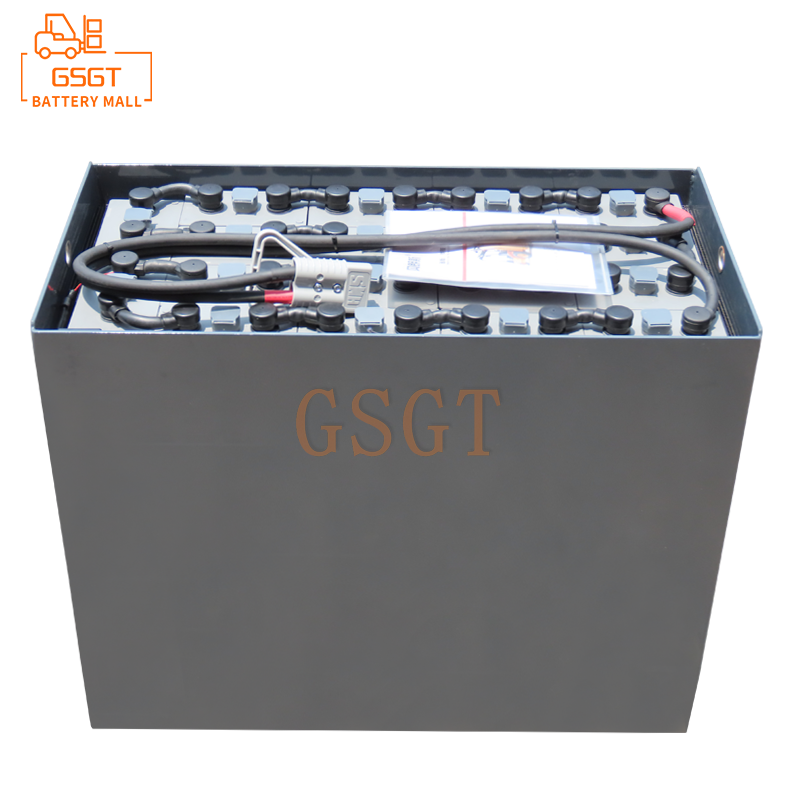Time:2025-05-15 15:44:47
Browse:664
In modern industrial and logistics systems, forklifts, with their characteristics of high efficiency and convenience, have become indispensable equipment for goods handling. As the core power component of forklifts, lead-acid batteries face disposal challenges as their service life increases. If not handled properly, the harmful substances such as heavy metal lead and sulfuric acid contained in lead-acid batteries will cause serious pollution to soil, water sources and air, and at the same time waste recyclable resources such as lead and plastic. Therefore, exploring the correct way to recycle retired lead-acid batteries, especially forklift batteries, has significant environmental and economic significance.
1. Current Situation and Problems in the Disposal of Retired Lead-Acid Batteries
At present, China's annual production and consumption of lead-acid batteries both rank among the top in the world, and along with this, there is a huge number of retired batteries. However, there are many irregularities in the lead-acid battery recycling and processing market. On the one hand, the phenomenon of illegal small workshops recycling persists despite repeated prohibitions. These small workshops lack professional processing equipment and environmental protection measures. During the process of disassembling batteries, they randomly dump waste acid and smelt lead plates in the open air. The lead-containing waste gas produced is directly discharged into the atmosphere, and the lead-containing waste residue is randomly piled up, causing the heavy metal content in the surrounding soil to seriously exceed the standard, posing a great threat to the ecological environment and residents' health. On the other hand, formal recycling enterprises are facing the predicament of "not having enough to eat". Due to the obvious price advantage of illegal recycling channels, a large number of retired lead-acid batteries flow into small workshops, causing a shortage of raw materials for regular enterprises, an increase in operating costs, and making it difficult to form a scale effect, which restricts the healthy development of the industry.
In addition, the public has insufficient understanding of the importance of lead-acid battery recycling and a weak sense of environmental protection. Some forklift user enterprises and individuals, in pursuit of economic benefits, sell retired batteries to illegal recyclers with higher prices, ignoring the potential environmental risks. Meanwhile, although the laws and regulations in China regarding the recycling and treatment of lead-acid batteries have been gradually improved, there are still loopholes in the supervision and enforcement level, making it difficult to effectively curb illegal recycling activities.
2. The Correct Process for Forklift Battery Recycling
(1) Safe collection and storage
After the battery is retired, the user unit or individual of the forklift should conduct a safety inspection of the battery immediately to ensure that there is no leakage, damage or other conditions. If battery damage or acid leakage is found, emergency measures should be taken immediately, such as using special adsorption materials to adsorb the leaked acid and storing the leaked battery separately in a sealed container to prevent the acid from spreading and causing secondary pollution.
During the collection process, dedicated transport vehicles and containers that meet the standards should be used. Transport vehicles should be equipped with anti-leakage and anti-corrosion functions. The containers should be able to effectively fix the batteries to prevent battery damage caused by collision or squeezing during transportation. At the same time, batteries should be classified and stored at the collection points. Batteries of different specifications and in different usage conditions should be separated to facilitate subsequent processing. The storage area should be well-ventilated, kept away from fire sources and high temperatures, with clear warning signs set up and corresponding fire-fighting and emergency equipment equipped.
(2) Professional transportation
The transportation of retired forklift batteries must be entrusted to enterprises with qualifications for transporting dangerous goods. Transportation enterprises must strictly abide by relevant laws and regulations, travel along the prescribed transportation routes and at the designated times, and ensure the safety of the transportation process. Before loading, the transport personnel need to recheck the batteries to ensure that the packaging is intact and they are firmly fixed. During transportation, the condition of the vehicle and goods should be inspected regularly to prevent any unexpected situations. In the event of battery leakage, fire or other accidents, the transportation personnel should immediately activate the emergency response plan, take corresponding measures and report to the relevant departments in a timely manner.
(3) Formal disassembly and disposal
A formal lead-acid battery dismantling enterprise needs to be equipped with advanced production equipment and professional technical personnel. During the disassembly stage, the battery casing is first separated from the internal plates and electrolyte through mechanical crushing equipment. The separated plastic shells, after undergoing processes such as cleaning, crushing and granulation, can be made into recycled plastic pellets for the production of plastic products. The sulfuric acid in the electrolyte can be reused in industrial production after purification, concentration and other treatments. The lead in the plates is processed through smelting, refining and other techniques to produce recycled lead that meets national standards, which is used in the manufacture of new lead-acid batteries or other lead products.
Throughout the entire disassembly and processing process, enterprises must strictly control pollutant emissions. For the waste gas generated during the disassembly process, it needs to be purified through waste gas treatment equipment to remove harmful substances such as lead dust and sulfuric acid mist, and be discharged only after meeting the national emission standards. Wastewater must go through multiple treatment processes such as neutralization, sedimentation and filtration to ensure that the water quality meets the standards before being discharged or reused. Waste residue should be handed over to qualified units for safe disposal to prevent heavy metal pollution.
3. Measures to promote the correct recycling of Forklift batteries
(1) Improve the legal and regulatory system
The government departments should further improve the laws and regulations related to the recycling and treatment of lead-acid batteries, and clarify the responsibilities and obligations of the subjects at each link. Establish strict market access standards, standardize the qualification approval of recycling enterprises, raise the industry threshold, and eliminate small workshops and illegal recycling points that do not meet the conditions. Strengthen the supervision over the recycling, transportation and processing links, establish and improve the supervision mechanism, and apply big data, Internet of Things and other technological means to achieve the full life cycle tracking and management of retired lead-acid batteries, ensuring that every battery can flow into the regular processing channels.
(2) Strengthen publicity and education to enhance environmental awareness
Through media such as television, newspapers and the Internet, extensive popular science publicity activities on the recycling and treatment of lead-acid batteries should be carried out to popularize to the public the harm of harmful substances in lead-acid batteries to the environment and human health, as well as the significance of correct recycling. Specialized training and lectures will be conducted for enterprises and individuals using forklifts to enhance their environmental awareness and legal consciousness, and guide them to actively cooperate with the formal recycling work. At the same time, the public is encouraged to participate in supervision, report illegal recycling activities, and create a favorable atmosphere where the whole society pays attention to and participates together.
(3) Policy Support and Economic incentives
The government can introduce relevant policies to offer tax incentives, financial subsidies and other support to formal lead-acid battery recycling and processing enterprises, reduce their operating costs and enhance their market competitiveness. Establish an extended producer responsibility system, requiring lead-acid battery manufacturers to assume certain recycling responsibilities. Encourage enterprises to build their own recycling networks or cooperate with regular recycling enterprises to form a closed-loop industrial chain of "production - recycling - reuse". In addition, through price control measures, the cost of illegal recycling can be increased to guide retired lead-acid batteries to flow into regular channels.
(4) Technological Innovation and Industrial Upgrading
Increase investment in the research and development of lead-acid battery recycling and treatment technologies, encourage research institutions, universities and enterprises to carry out industry-university-research cooperation, and develop more efficient and environmentally friendly recycling and treatment technologies and equipment. For example, develop new types of battery disassembly equipment to improve disassembly efficiency and resource recovery rate; Research advanced pollutant treatment technologies to reduce environmental risks during the treatment process. Promote the upgrading of the lead-acid battery recycling and processing industry, facilitate its development towards scale, specialization and intelligence, and enhance the overall benefits of the entire industry.
4. Future Outlook
With the continuous improvement of environmental protection requirements and the deepening of the concept of resource recycling, the recycling and treatment of retired lead-acid batteries, especially forklift batteries, will usher in new development opportunities. Through efforts in multiple aspects such as improving laws and regulations, strengthening supervision, enhancing public awareness, providing policy support and technological innovation, China is expected to establish a standardized, efficient and environmentally friendly lead-acid battery recycling and treatment system. In the future, the lead-acid battery recycling and processing industry will become more standardized and industrialized. It will not only effectively reduce environmental pollution but also achieve efficient recycling and utilization of resources, making significant contributions to China's green and sustainable development.

$3130

$3920

$3060

$2940

MESSAGE
Professional And Efficient
Security
Affordable Price
Professional Services